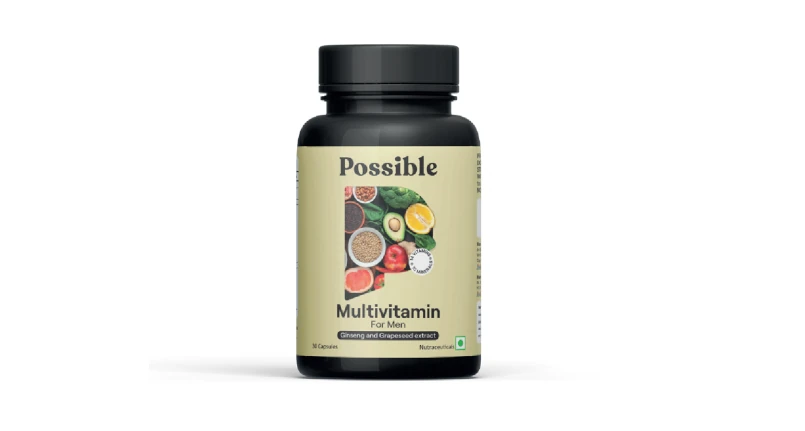Vitamins and Minerals for the immune system
Knowing which micronutrients are good for our body and, consequently, choosing which foods to favor is the first step in having efficient defences.
Among the most relevant elements for the physiology of the immune system , vitamins C and D, selenium , iron and zinc stand out . Often in a synergistic way, these contribute to maintaining the physiological activities of the immune cells , whose key role is to control and defend our body.
For this reason, it is essential to assimilate adequate quantities of them every day in the diet: knowing these ” active ingredients ” allows you to favor foods rich in them and, in case of deficiencies, to resort to food supplements to support the immune system .
They must never be missing
Vitamins and minerals are defined as “micronutrients” because they are present in minimal quantities in foods and micro-doses are enough to exercise their beneficial functions on the body.
C vitamin
Vitamin C boasts many properties and performs numerous functions, making it indispensable for the overall well-being of our body.
The function for which it is best known is the antioxidant one : vitamin C in fact counteracts the action of free radicals , harmful molecules that can weaken the body, protecting it from oxidative stress .
Vitamin C also participates in the synthesis of collagen in the skin and cartilage , facilitates the absorption of iron , counteracts cell aging and is energizing in moments of physical and mental tiredness. Vitamin C is also invaluable in maintaining the normal functionality of blood vessels , accelerates wound healing , keeps the skin healthy and improves the body ‘s reaction in times of severe stress .
Immune system: what is Vitamin C for?
Vitamin C acts in support of various functions of the immune system :
- Modulates the immune response : vitamin C is recognized as having an immunomodulatory action as it activates and supports an adequate response against pathogens, but, at the same time, avoids excessive damage to the body related to the immune reaction. Numerous studies have shown that vitamin C is able to reduce the risk and improve the course of respiratory and systemic infections, acting both in terms of prevention and speed of healing.
- Promotes microbial killing : Vitamin C stimulates the migration of neutrophils to the site of infection and improves the phagocytosis and toxicity capabilities of immune cells against pathogens.
- Reduces the risk of colds : Ensuring adequate vitamin C intake through diet or supplementation, especially in the elderly or those exposed to risk factors, is necessary for proper immune function and resistance to infections. Studies on the effects of vitamin C have shown that colds may last fewer days and symptoms may be less severe in people who regularly consume adequate levels of vitamin C. Even in athletes exposed to short periods of intense physical activity – a condition that causes immune deficiency and greater risk of getting sick – vitamin C is useful in preventing contagion .
Where is it
The main sources of vitamin C are fresh fruits and vegetables . Citrus fruits (such as oranges , grapefruit ), strawberries , currants and kiwis are especially rich in it . As for vegetables , vitamin C is present in significant amounts in peppers , tomatoes , broccoli , cabbage, Brussels sprouts , lettuce , spinach , arugula , radicchio and potatoes .
How much is needed
According to the indications contained in the Reference Intake Levels of Nutrition and Energy for the Italian population (LARN) of the Italian Society of Human Nutrition (SINU), the recommended intake of vitamin C is around 80 mg for women and 90 mg for the men. As regards the immunomodulatory activity and the prevention of infections, the recommended dose of vitamin C is at least 500 mg per day.
Vitamin D
Vitamin D is known above all for being an ally of bone health : in fact, vitamin D plays a fundamental role in bone formation and mineralization . Furthermore, vitamin D is involved in the regulation of calcium homeostasis (in particular, it allows its absorption and fixation in the skeleton ) and participates in the balance of other minerals such as phosphorus , sodium and magnesium . The functions of vitamin D, however, are not limited to maintaining healthy bones.
Immune system: what is vitamin D used for?
Vitamin D contributes to normal functioning, as it is capable of influencing both innate and adaptive immunity.
In particular, the active form of vitamin D:
- Increases the antimicrobial capabilities of immune cells.
- It plays a key role in controlling infections , especially acute respiratory infections, and in reducing the excessive inflammatory response by white blood cells .
Numerous studies have shown that low levels of vitamin D are directly associated with a greater likelihood of catching colds or other upper respiratory tract infections. Vitamin D supplementation is important for immune health year-round, but especially during the peak of cold weather , when vitamin D levels are at their lowest.
In 2017, a meta-analysis published in the British Medical Journal collected and evaluated the evidence of clinical studies carried out to date on the use of the vitamin, demonstrating how its integration is able to reduce the risk of acute respiratory infections . This effect has been particularly evident in those who are severely deficient.
The results of the publication have raised a lot of debate in the scientific community and the doubt on the real usefulness of recommending vitamin D supplementation in healthy people in order to strengthen their immune system and prevent respiratory infections remains. On the other hand, the opinion is shared that in subjects with vitamin D deficiency this indication is sustainable. In this case, the aforementioned study demonstrated how much more effective is the daily supplementation of vitamin D, rather than a weekly or monthly intake. With respect to the dosage, there is no certainty, and it would seem to depend on the degree of deficiency or on the person’s health conditions. The daily requirement of vitamin D, in fact, varies according to age.
Where is it
Almost all of vitamin D (about 90% of the requirement) is produced in the skin, starting from a derivative of cholesterol , by the action of ultraviolet light from the sun. For this reason, we often hear the advice to be outdoors as much as possible .
Vitamin D is also found in foods , such as cod liver oil , egg yolks , cheeses , butter , some fatty fish ( eel , mackerel , sardines, tuna and salmon ), liver , green vegetables and mushrooms.
In winter, food becomes the main source of vitamin D and, when deficient, it is possible to consider supplementing it to guarantee an adequate supply, always under medical indication and supervision.
How much is needed
In regards to bone health , in general, the daily requirement for vitamin D is 400 international units (IU). The doses can vary and reach up to 1000 IU per day in the presence of risk factors or more marked deficiency.
Based on studies, to support the immune system and protect against influenza and other acute respiratory infections, it is reasonable to take a vitamin D supplement of 1000 IU per day.
Mineral salts
Along with that of vitamins, the group of nutrients that cannot be missing in the diet to support the immune system is that of mineral salts . In fact, these are elements that participate directly in the activation and maintenance of the defenses and, if the body is deficient, they can increase the vulnerability to infections and various other diseases.
The body needs them in minimal quantities, but that “little” amount must be there because mineral salts are essential for maintaining the well-being of the body : the daily nutritional requirement , as well as for other micronutrients, can be met within the framework of a healthy and balanced diet . If the diet is not sufficient to guarantee the right amount every day, it is possible to resort to food supplements , subject to medical advice.
Selenium
Selenium is an essential mineral that belongs to the group of microelements ; it carries out an important protective action on cell membranes . In particular, this mineral helps to counteract the oxidative stress that causes aging: selenium is one of the main elements of protection against free radical damage, especially if it is associated with vitamin E.
Selenium supports normal defense function by stimulating the production of antibodies , the activity of T lymphocytes and natural killers and the functions of innate immune cells.
Selenium is also involved in the metabolism of thyroid hormones and protects the cardiovascular system .
The selenium content in foods is variable because it depends on its presence in the soil from which the foods come. Good food sources of this mineral are: Brazil nuts , organ meats , stockfish , shellfish , tuna, sardines and rice .
Zinc
Zinc is an indispensable mineral for the well-being of the organism, as it is part of the molecular structure of many enzymes . Zinc has antioxidant properties and plays a key role in macronutrient metabolism , neurological functioning and reproduction .
Zinc is important as an immunostimulant as it plays a central role in the maturation and differentiation of immune cells, promoting lymphocyte development and antibody production.
Especially in the change of season or when the body is subjected to excessive stress, zinc helps to alleviate the sense of tiredness , increasing energy. Furthermore, this element helps to keep the mucous membranes and skin intact, i.e. the first barriers to the penetration of infectious agents into our body.
Zinc is present in foods such as meat, fish , eggs , milk and derivatives, wheat bran , legumes and dried fruit .
Iron
Iron participates in the activity of numerous enzymes: it contributes to the normal formation of red blood cells and hemoglobin , thus helping to transport oxygen in the body . This mineral is also used for the production of collagen (a substance that makes up many tissues, including the skin) and neurotransmitters . Iron also helps to strengthen the immune system and, being involved in energy metabolism , increases resistance to tiredness.
In foods, iron is found in two forms: the eme iron (more available) is contained in foods of animal origin (beef meat, offal, egg yolk), while the non-eme iron (absorbed in lower quantities) is characteristic of vegetables, such as legumes, spinach, dried fruit and apricots .




